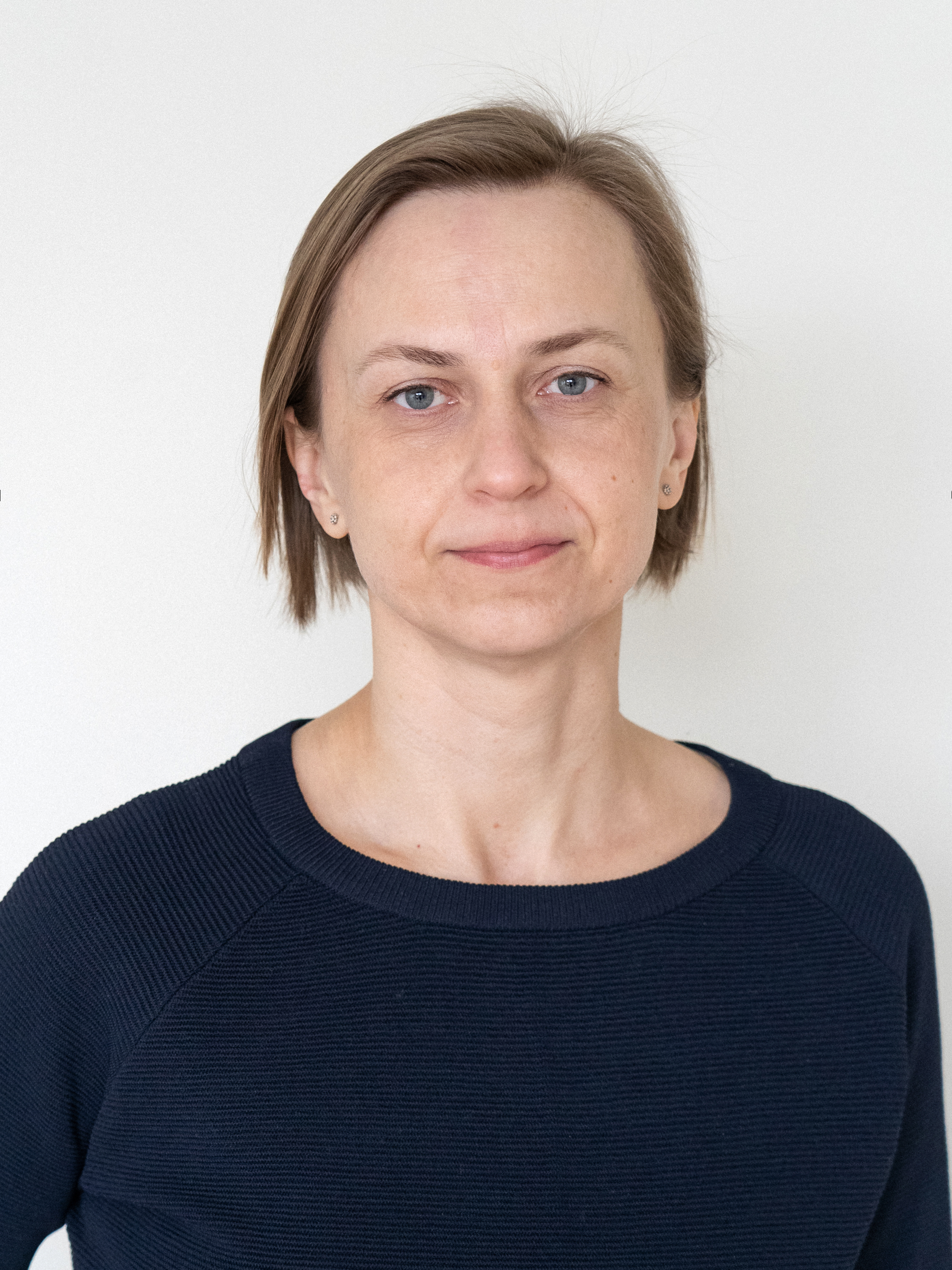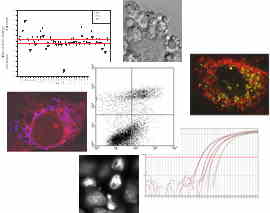|
|
AUŠRA SASNAUSKIENĖ Associate Professor Department of Biochemistry and Molecular Biology Institute of Biosciences Email: Phone: +370 5 239 8225 |
|
Acquired chemoresistance is a major limitation for successful anti-cancer therapy. Some mechanisms of cell chemoresistance are well known: alterations in drug transport and metabolism, modification of drug targets, activation of DNA repair or changes in apoptosis induction. Deeper understanding of chemoresistant cell physiology, in particular cell survival signalling, autophagy and cell death pathways, suggests new possible targets to overcome chemoresistance. We focus our research on molecular mechanisms responsible for cellular chemoresistance of colorectal cancer cells, in particular on the alterations in pathways of cell survival signalling and autophagy. The latter may have both cancer-promoting and cancer-suppressing effects. One focus of our group is to reveal the changes in autophagic machinery in chemoresistant vs chemosensitive cells.
Inflammation and antitumor immunity are important determinants of colorectal cancer progression; it is mediated by cytokine signalling. We have demonstrated that cell stimulation with exogenous interleukin-1 alpha (IL-1α) increased 5-fluorouracil (5-FU) cytotoxicity in both chemosensitive and chemoresistant colorectal cancer cell lines [1]. It was the result of increased cell death, and not of cell cycle arrest. The combined exogenous (IL-1α) and 5-FU treatment changed the expression of cell adhesion molecules that may have an impact on adhesion-dependent chemoresistance and metastatic potential of cells.
We have determined that interleukin-8 (IL-8) and its receptor CXCR2 are upregulated in the chemoresistant colorectal cancer cells. However, chemoresistant cells remained sensitive to blockade of the CXCR2 pathway; it reduced the cell number. IL-1α alpha was found to stimulate production of IL-8 [2].
Notch and Wnt signalling regulate differentiation of intestinal cells and alterations in these pathways may lead to carcinogenesis. We have determined that Notch and Wnt signalling is upregulated in chemoresistant colorectal cancer cells [3]. The roles of Notch and Wnt pathways for cell survival after 5-FU and oxaliplatin (OxaPt) treatment were different: in the case of 5-FU treatment, Wnt pathway was cytoprotective and supported chemoresistance, while inhibition of either Notch or Wnt pathways increased the cytotoxicity of OxaPt.
In 2020, the researchers of our group together with the scientists from the Institute of Biochemistry participated in two projects: 1) evaluation of cytotoxicity of aromatic nitrocompounds and N-oxides (DOTSUT-34/09.33-LMT-K712-01-0058), 2) elucidation of the mechanisms of bacteriophage-derived nanotube entry to colorectal cancer cells (S-SEN 20-4). We have also implemented a project (MSF-JM-2/2020) with researchers from the Institute of Biomedical Sciences of the Faculty of Medicine, dedicated to molecular mechanisms of pathogenesis of rare genetic diseases. During the year 2020, an invited review article concerning the changes in Notch signalling pathway in endometrial cancer was prepared [4].
SELECTED PUBLICATIONS
- Grigaitis, P., Jonusiene, V., Zitkute, V., Dapkunas, J., Dabkeviciene, D., Sasnauskiene A. Exogenous interleukin-1α signaling negatively impacts acquired chemoresistance and alters cell adhesion molecule expression pattern in colorectal carcinoma cells HCT116. Cytokine. 2019, 114: 38–46.
- Dabkeviciene, D., Jonusiene, V., Zitkute, V., Zalyte, E., Grigaitis, P., Kirveliene, V., Sasnauskiene, A. The role of interleukin-8 (CXCL8) and CXCR2 in acquired chemoresistance of human colorectal carcinoma cells HCT116. Med Oncol. 2015, 32(12): 258.
- Kukcinaviciute, E., Jonusiene, V., Sasnauskiene, A., Dabkeviciene, D., Eidenaite, E., Laurinavicius, A. Significance of Notch and Wnt signaling for chemoresistance of colorectal cancer cells HCT116. J Cell Biochem. 2018, 119(7): 5913–5920.
- Jonusiene, V., Sasnauskiene, A. Notch and endometrial cancer. Adv Exp Med Biol. 2021, 1287: 47–57.


